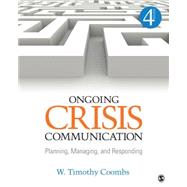In November of 2018, the Centers for Disease Control and Prevention (CDC) in the U.S. announced a recall of romaine lettuce due to a multistate outbreak of Shiga toxin-producing Escherichia coli O157:H7 (E. coli O157:H7) infections linked to romaine lettuce. The advice from the government was to avoid eating any romaine lettuce:
CDC is advising that U.S. consumers not eat any romaine lettuce, and retailers and restaurants not serve or sell any, until we learn more about the outbreak. This investigation is ongoing and the advice will be updated as more information is available.
As of Nov. 21st, 32 people in 11 states had been infected. E. coli can require hospitalization and can cause death meaning the recall was a serious situation. The key during an outbreak is to make people aware of the danger and to encourage people to not consume the dangerous product. Compliance is not easy because around 40% of people will eat a product even if they know it has been recalled. Still, the first step is awareness of the problem in a recall. That is why crisis communication is so important during a food recall/food safety crisis.
The food industry and the U.S. government recommend that food organizations utilize their own social media to make people aware of a product harm situation and the existence of a product recall. However, research has shown a reluctance by food organizations to use their own social media to announce a recall. Under 20% of food organizations announced their recalls on their own social media. Most simply relied upon the government to post information about a recall. That is why the romaine lettuce recall stands out in the sea of product recalls in the U.S.
The leafy green growers associations, a group of organizations that represent romaine lettuce and other leafy greens, did use their social media to announce and to support the recall. Below is the statement from the California Leafy Green Marketing Agreement:
In light of today’s announcement by government health agencies in the U.S. and Canada of an E. coli outbreak linked to romaine, a group of produce industry associations (listed below) is relying on producers and retail/restaurant customers to support the government health agency advisories and is urging an industry-wide voluntary withdrawal of all romaine currently in marketing channels and held in inventory.
Food safety is our top priority. We must take swift action to protect consumers by stopping shipment of romaine lettuce and withdrawing any product that has been shipped to retail stores or restaurants.
We are echoing the government health agencies’ advice to consumers, restaurants and retailers not to eat, serve or sell romaine lettuce at this time. The FDA is further advising consumers to throw away any romaine they may have in their homes.
In order to be sure that any romaine lettuce that may have been responsible for illnesses is completely gone, we are urging full compliance with the government’s request for a voluntary withdrawal of all romaine.
We believe a withdrawal of romaine lettuce is the fastest way to clear up the supply chain of any romaine that could be responsible for illnesses and to make a hard, convincing and clean break from harvesting and shipping romaine lettuce until this outbreak is declared over or the source of the implicated produce can be identified. Additionally, we are calling on handlers to clean and sanitize any equipment that may have been used in recent weeks to prevent cross-contamination of product during future harvest, processing and distribution activities.
A group of food safety experts from the produce industry is coming together as quickly as possible to closely examine information that may help pinpoint the specific source of the outbreak utilizing the extensive traceback information maintained by leafy greens producers.
The goal of this effort is to learn any information about the geographic region or specific farms that may be tied to this outbreak. Government agencies have indicated the E. coli isolate involved in this outbreak has been closely related by Whole Genome Sequencing data to two past outbreaks linked to leafy greens in 2016 and 2017.
No one wants to get to the bottom of how these outbreaks are occurring faster than the producers of leafy greens. We absolutely must do everything possible to stop recurring outbreaks. We owe this to those whose lives have been tragically impacted by this outbreak and to all our consumers who trust us to grow safe food for their families.
It should be noted this outbreak and the consumer advisories are limited to romaine lettuce only and do not impact other leafy greens products such as iceberg, green leaf or spinach.
- Arizona Leafy Greens Marketing Agreement
- California Leafy Greens Marketing Agreement
- Produce Marketing Association
- United Fresh Produce Association
- Western Growers
- Yuma Safe Produce Council
- Yuma Fresh Vegetable Association
An announcement and link to the statement appeared in the Twitter feed and Facebook page for the California LGMA. It is great to see a food organization supporting a recall so strongly. Typically, a food industry does suffer loses when there is a product recall. Even if only certain products are recalled, people tend to avoid the entire product category. For instance, if only certain spinach is recalled, customers tend to avoid all spinach for a time. The negative effects from awareness of a recall is perhaps one reason food organizations fail relay food recall information through their own social media. This is a short-sighted view because keeping consumers safe seems to be the wiser move and the action embraced by the leafy greens organizations.
Questions to Consider:
- What are the advantages and disadvantages of announcing a food recall through an organization’s own social media?
- Why do you think the leafy green organizations supported the recall?
- Why do you think people still eat recalled products?
- What can be done to encourage people not to eat recalled products?

